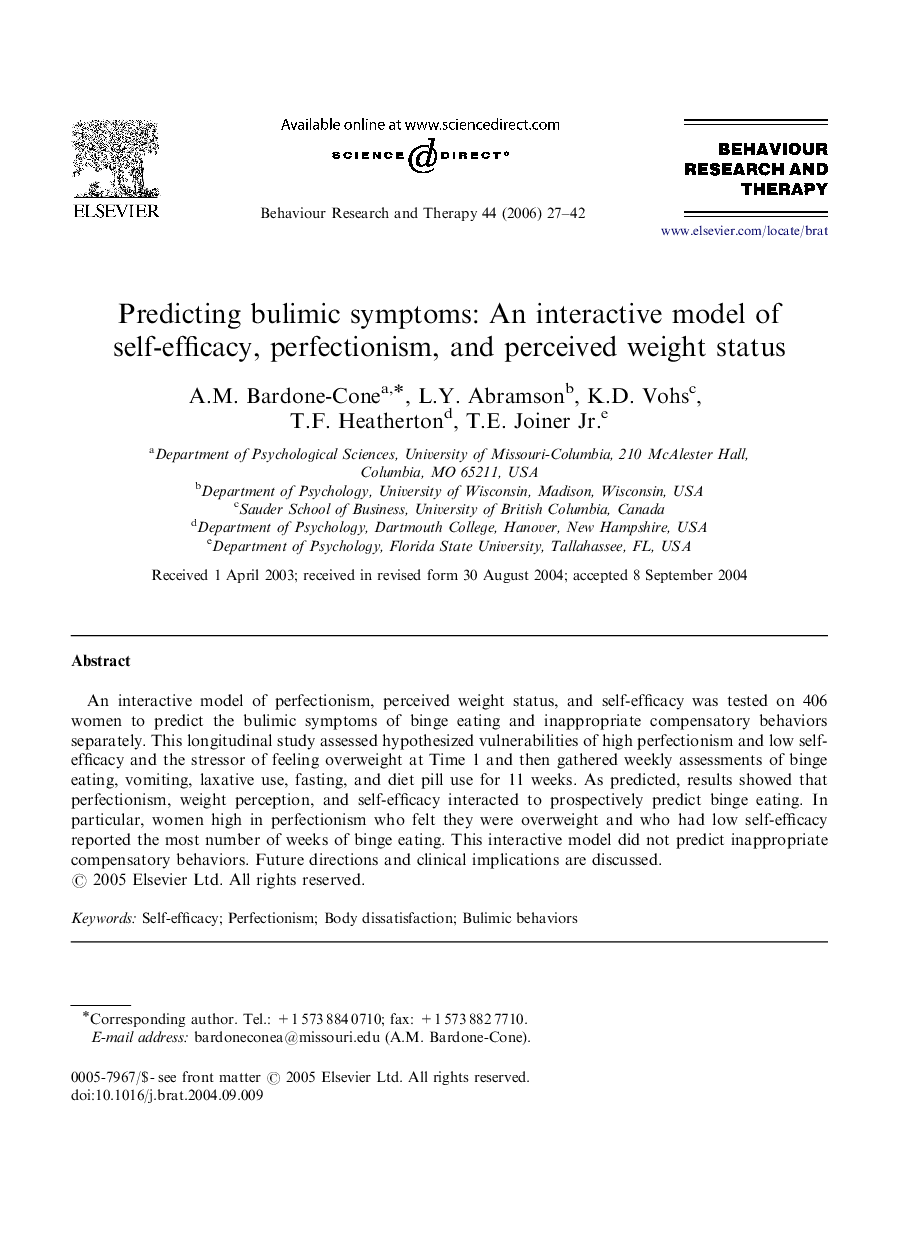| Article ID | Journal | Published Year | Pages | File Type |
|---|---|---|---|---|
| 902421 | Behaviour Research and Therapy | 2006 | 16 Pages |
An interactive model of perfectionism, perceived weight status, and self-efficacy was tested on 406 women to predict the bulimic symptoms of binge eating and inappropriate compensatory behaviors separately. This longitudinal study assessed hypothesized vulnerabilities of high perfectionism and low self-efficacy and the stressor of feeling overweight at Time 1 and then gathered weekly assessments of binge eating, vomiting, laxative use, fasting, and diet pill use for 11 weeks. As predicted, results showed that perfectionism, weight perception, and self-efficacy interacted to prospectively predict binge eating. In particular, women high in perfectionism who felt they were overweight and who had low self-efficacy reported the most number of weeks of binge eating. This interactive model did not predict inappropriate compensatory behaviors. Future directions and clinical implications are discussed.
